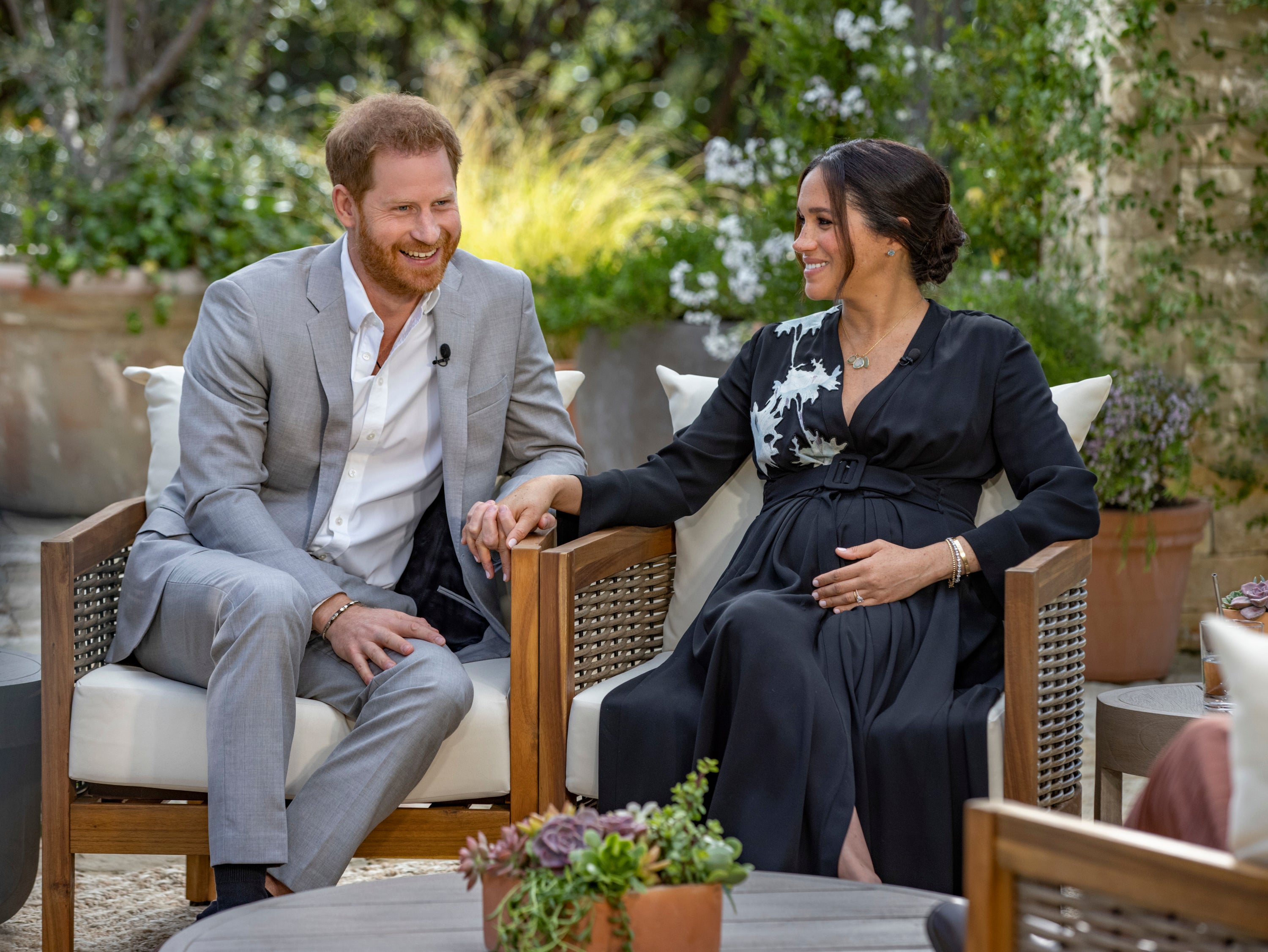Harry and Meghan expose a ruthless, racist anti-fairytale in their primetime Oprah interview
Over the two-hour interview, audiences got an excruciating reveal around what it was like for an American woman of colour to be absorbed into a thousand-year-old institution
Your support helps us to tell the story
From reproductive rights to climate change to Big Tech, The Independent is on the ground when the story is developing. Whether it's investigating the financials of Elon Musk's pro-Trump PAC or producing our latest documentary, 'The A Word', which shines a light on the American women fighting for reproductive rights, we know how important it is to parse out the facts from the messaging.
At such a critical moment in US history, we need reporters on the ground. Your donation allows us to keep sending journalists to speak to both sides of the story.
The Independent is trusted by Americans across the entire political spectrum. And unlike many other quality news outlets, we choose not to lock Americans out of our reporting and analysis with paywalls. We believe quality journalism should be available to everyone, paid for by those who can afford it.
Your support makes all the difference.If you don’t come from Britain, princes and princesses are seen on a par with celebrities. At least that’s how Meghan Markle, as she explained at the start of her and Prince Harry’s ravenously anticipated (not to mention historic) interview with Oprah Winfrey, viewed the family she would eventually marry into. And why wouldn’t she? Coming of age in starry Los Angeles in the Nineties, she no doubt thumbed through issues of teen magazine Tiger Beat containing Prince William centrefolds next to pictures of Titanic-era Leonardo DiCaprio.
Even watching Princess Diana’s famous interview with Martin Bashir couldn’t shake America’s view of the British royal family as seeming vaguely aspirational, especially as Diana’s young sons came of age. For Meghan, who had the fairytale wedding to Harry in 2018, her status as a biracial American actor who had been married before seemed to represent change and a general sense of optimism around what the royal institution could be. But as Meghan noted on Sunday night, opening up for the first time about what drove her and her husband to “step down” from the royal family in 2019, any sense of hope and confidence was quickly extinguished. Regardless of how you feel about why they left, one thing felt clear after the special wrapped: Meghan could not have been more ill-prepared to succeed within the royal framework, which the couple revealed to be a ruthless, even allegedly blatantly racist anti-fairytale.
From what Meghan says, if she had been given a princess lesson or three, or been offered security (a word repeated early and often throughout the two-hour event), or really anything beyond a hurried instruction on how to curtsey to the Queen, she and Harry would not have felt driven to leave the royal family.
But they have left, and as of last month, it’s been made permanent. And during two admittedly riveting hours of television (and probably one of the finest interviews of Oprah’s long career), audiences got an excruciating reveal around what it was like for an American woman of colour to be absorbed into a thousand-year-old institution and nearly be driven to take her own life because of it. It doesn’t even matter what you believe about who’s “right” in the situation – and because every story needs a villain and hero, people will be arguing about who is “right” for weeks to come – Meghan clearly went through something deeply traumatic.
Even the unflappable Oprah was rendered speechless at several moments, most notably when Meghan revealed there had allegedly been “concerns and conversations about how dark” the couple’s unborn child would be.

“Who is having THAT conversation... with you?” Winfrey spat. “What? Hold up, hold up. There’s a conversation with you...”
“With Harry,” Meghan corrected.
“About how dark your baby is going to be?”
“Potentially,” Meghan replied. “And what that would mean or look like.”
And the bombshells just kept falling. Among the claims shared with Winfrey were that Harry had been financially cut off from his family; Harry alleging that his father, Prince Charles, and brother, Prince William, are “trapped”; that Charles does not return Harry’s calls; that they begged the royal family to continue to provide physical security for them, which the royal family refused; that there exists an “invisible contract” between the royals and the tabloids informally stipulating favourable press in exchange for access; that the pair had a secret wedding three days before the televised event; and that Meghan had begged for help from within “The Firm”, and been ignored. (Stiff upper lip, and all.)
Again, it’s hard for Americans to understand just how deep the collective trauma goes within a system like this, with one duty-bound generation begetting another. As revealed in their discussion with Oprah, however, Harry and Meghan made a horrible but clearly necessary choice: to put family above country. It might not be traditional; it might be the source of endless debate (perhaps more so in Britain than in the US, where rugged individualism is overly romanticised); and the couple may never be free from the tabloids’ monster grip. But at least, as Harry and Meghan have compellingly shown in their first real foray into taking back their narrative, they can be part of the conversation. And that is their choice to make.


